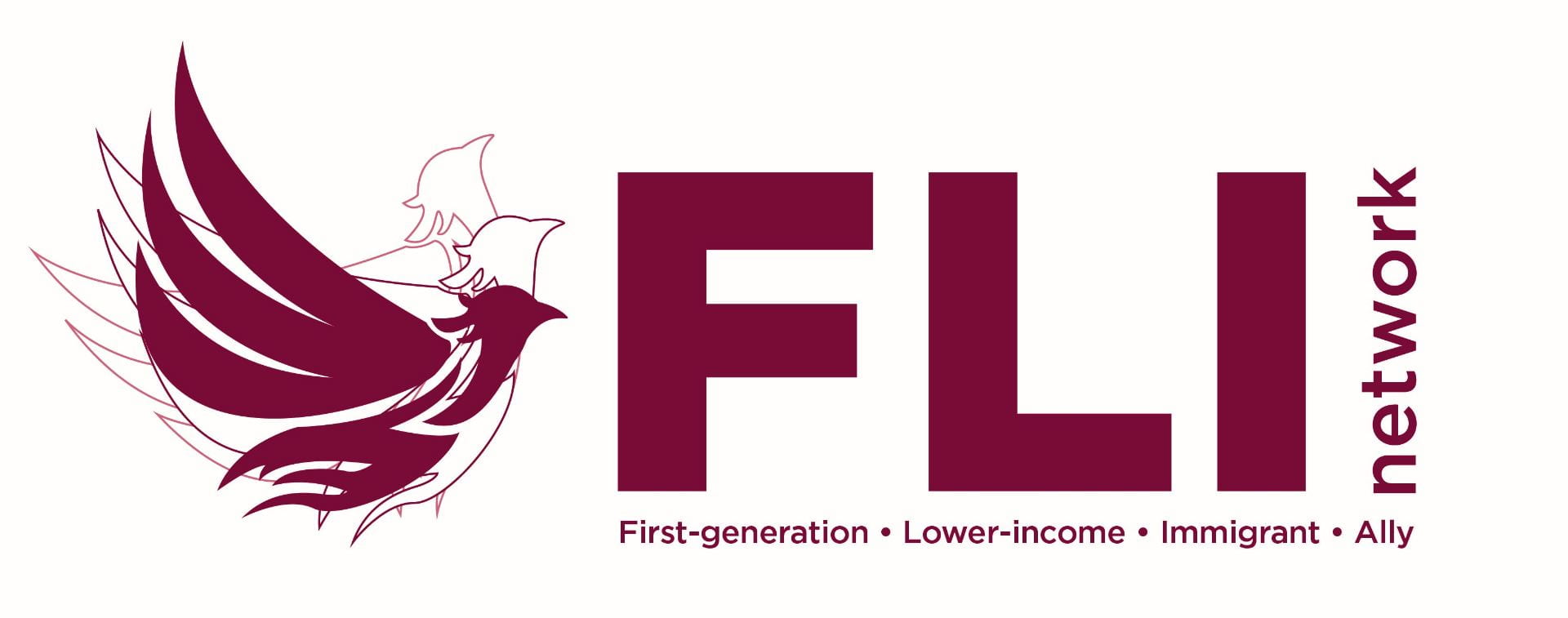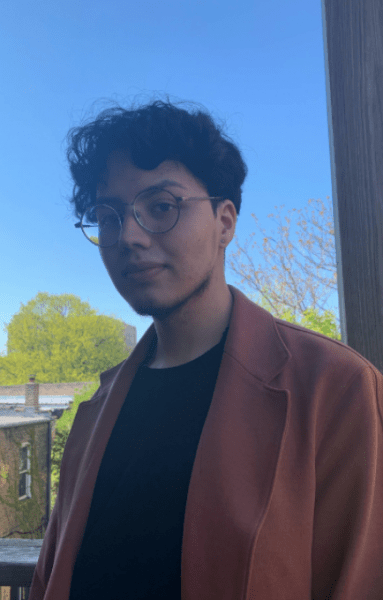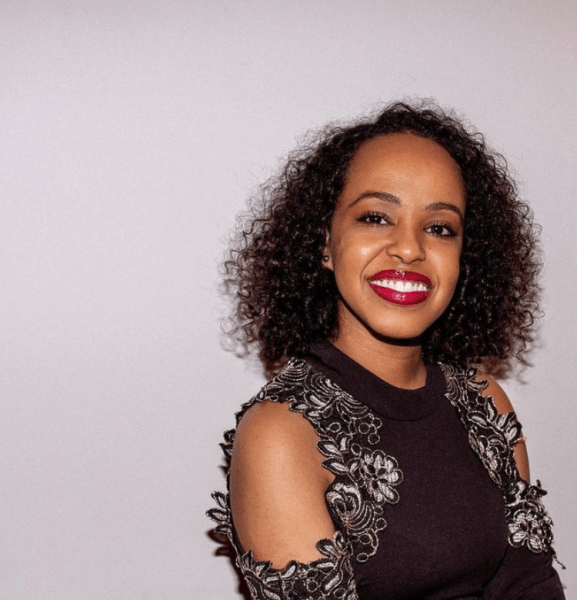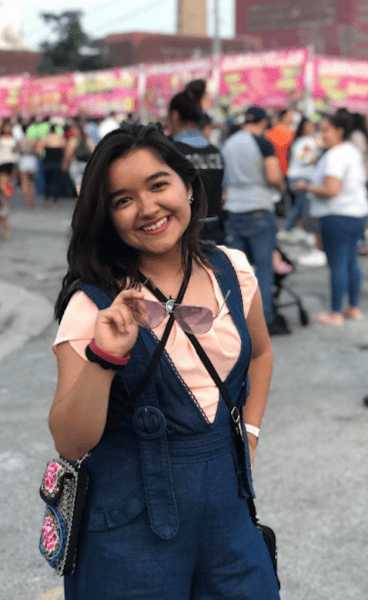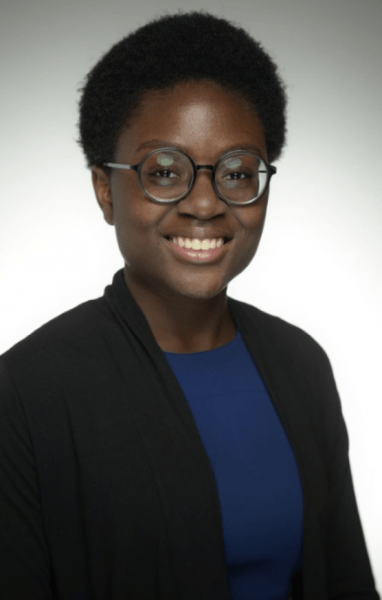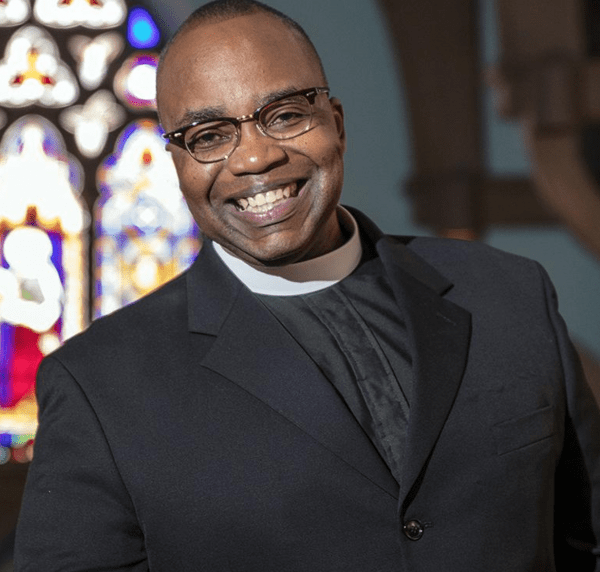To increase visibility, share advice and highlight successes of the First-generation, Lower-income, and Immigrant UChicago community members
Omar Salinas
Bethel Kifle
Tell me about yourself.
My name is Bethel Kifle and I am a first-year graduate student at UChicago studying social work on the social admin track. My program of study is Transforming Justice Practices and Policies and I am an abolitionist working towards a reality where a carceral state no longer exists.
What are some challenges you face as an FLI student?
I think most of the challenges are things that have been challenges over the course of my life. As a low-income, immigrant student – the burdens of the family are much heavier than for others. In some more financially stable or wealthy families, students can rely on their relatives for support. For me, it’s the inverse. Despite placing boundaries and trying to focus on myself, being poor and my family’s poverty will continue to be a challenge. I am forced to figure out working to pay my bills, my siblings’ needs, do an unpaid field placement, and stay on top of my school work in addition to providing emotional or financial support to my family members.
Is there a resource you wish the university had?
In undergrad, we had centers with dedicated staff members we could speak with to discuss academic or personal challenges as well as interests. At UChicago, it feels like we are left to our own devices to figure everything out on our own. I understand we’re adults but it would be nice to have a consistent resource in our corner to support us along the way (outside of academic advisors).
What advice would you offer to incoming FLI students?
I would advise them to seek out like-minded FLI students and connect with them right away. Because classes have been virtual, group chats have been a safe haven to vent or make jokes together and a primary reason I’ve kept pushing forward.
How did your affiliation with the First-generation, lower-income, and Immigrant (FLI) Community influence your choice of profession?
It’s impossible for me to detach my FLI background from my choice to pursue social work. I recognize the difficulties our communities face and the immense access to the privilege I have by virtue of attending UChicago.
Margot Bolaños-Gamez.
Can you describe your background?
My name is Margot Bolaños-Gamez. I am currently a 2nd year studying Environmental Science and potential Global Studies double major. I am from Houston, Texas, and a Mexican-American from my family background.
What challenges do you face as an FLI student and what have you learned to overcome some of them?
As an FLI student, some of my major challenges consisted of adapting to a higher academia rigor, the city of Chicago, and whom to reach out to with various kinds of needs that came up as a 1st year. How I came to overcome many of these was through the community I fostered in the CAAP program by reaching out to students that I knew from my same courses to study and encourage each other together. Similarly, many of them are from Chicago and they helped me adapt and see the beauty and choices that this city has to offer! Additionally, reaching out to CCSS’s staff for any concern or resources was crucial in many instances because I learned of multiple resources available for FLI that I had not known about before.
What advice would you give to your first-year you?
A piece of advice I would’ve personally wanted to tell myself as a first-year would be regarding the pressure of finding that first internship and wanting a specific GPA. Understanding and hearing from myself that while hard to accept it is okay to struggle with certain courses because not every student comes from the same academic background. That instead of feeling failure it is precisely the fact that I am not giving up in those courses that demonstrates how strong and capable I am to grow and exceed new expectations.
What is your proudest moment so far?
My proudest moment by far is being part of the family, the “home away from home” that I have here in the UChicago community. Despite the distance, the pandemic brought in our lives we are still in contact and stronger than ever United in both the struggles and the successes in each of our lives.
Interviewed by: Eseme Segbefia
Esela Segbefia
Can you introduce yourself and your background?
Hi! My name is Esela Segbefia and I am a third-year majoring in Public Policy. I am pursuing a career in Private Equity. I am originally from the Bronx, New York, though my family immigrated from Ghana, Africa. At the university, I am a student coordinator at the Center for College Student Success where I help other FLI students. I am also involved with Women in Business and the Trott Business Program.
What are the greatest challenges you’ve faced and what advice do you have to overcome them?
The greatest challenge that I have faced at the university is balancing my work with my mental health. Sometimes, I want to excel so greatly in both my classes and career goals that I often sacrificed sleep or downtime to do so. This led to me being very stressed and my mental health suffered as well. My advice for you is to manage your time properly. When you time manage, it is important not only to include the work that you have to get done related to your academics and career goals but also to include time for your social and personal life. This has helped me significantly during my time at the university.
What are your goals now and after college?
My goals for college this year is to finish my specialization for my major. Right now, I am specializing in impact investing. I want to research ways to improve public and private sector relationships to build entrepreneurial ecosystems in disadvantaged communities. I am currently looking for internships and jobs in this field as well. Thank you for interviewing me!
Interview by: Eseme Segbefia
Rev. Dr. Maurice Charles
Bio: Rev. Dr. Maurice Charles is the dean of Rockefeller Memorial Chapel at the University of Chicago. He grew up in East Cleveland and earned his Bachelor’s degree from Case Western Reserve. Rev. Dr. Charles earned his MDiv’90 and PhD’13 from the Divinity School, and prior to his return to the University, he was the dean of spiritual engagement and chaplain at Hobart and William Smith College in New York.
As a first-college graduate, he understands the struggles of navigating College, handling family pressures, and finding the funding to support an academic career. Since his return, he is committed to working with students who are facing the greatest challenges. He believes that these students often hold the most promise, and he wants to make sure they know that about themselves.
Q: Are there any specific resources on campus that you would like current students to know about?
I would like students to know about my office, The Rockefeller Chapel. I know students often hesitate to come in and talk to the Dean of the chapel because they might not be religious, but I want them to know that I speak with people about many different topics, not only religion and spirituality. I often talk to students about hard topics like intersectionality and sexual orientation and aid them in finding a vocation that aligns with their own personal values.
Our offices are available to everyone during times of crisis. I especially enjoy talking to the FLI students on campus. We have a spiritual office where students are able to use the space for study sessions, mediation, and yoga. Currently, our services are being offered online. You can find more information and resources at: (spirit.uchicago.edu).
Q: What advice can you offer current FLI students?
“If you knock on people’s doors you will find an openness that you might not have expected.”
I would encourage students to be proactive about knocking on faculty and staff doors when they need assistance and guidance. Take advantage of your professors’ office hours. I found that attending office hours helped me throughout my college career. The relationships I built with my professors allowed me to gain exposure to opportunities that I wouldn’t otherwise know. Many FLI students would be surprised at how many FLI faculty and staff members exist on campus.
Q: What is one change you wish to see during your time at the University of Chicago?
One of my biggest concerns arose after the 2016 campus climate survey. The level of dissatisfaction among the campus’ Trans and Black communities was very surprising. I hope the university continues to communicate and work with these communities in order to truly address their concerns. I would like to see this university take very seriously what the people who are the most marginalized have to say about the campus’ environment.
I would love our mindsets to switch from “how can we make this group happy” to “what wisdom do they have to offer us about who we are”. I believe there needs to be a shift in the University’s language on how it talks about inclusion. It should not be “I’m for transformation” rather “how can we transform”. Overall, I want openness. I believe the phrase we should retire from campus is “Oh, that will never happen.” This is a university where we create knowledge. The future is open.
Q: In what ways can the University build stronger connections with the surrounding communities?
For starters, we must continue to look around the room and ask ourselves who is missing. One of the things I’ve started to see since my return is that departments across the university are beginning to take the neighborhoods seriously. I’ve seen a shift from a “how can we help the community” mentality to “how can we partner up with the community.” We must look and treat surrounding communities as places of their own, with their own individual values, beliefs, and resources. We must realize that they are teaching us about Chicago, about their community and its needs. Since my arrival at the university, I continue to ask myself how the Rockefeller Chapel and its resources can be more accessible to the community.
Vallary Muhalia
Q. Can you explain your background?
A. My name is Vallary Muhalia and I am a third year in the College majoring in Computer science and Statistics. I was born and raised in Nairobi, Kenya and moved to the USA for college in 2018. As an international student, I am the first person in my family to attend college in the USA hence my close connection with the first -generation low income community on campus.
Q. What are you most passionate about and why?
A. I am most passionate about giving back to society through mentorship. This is because, growing up and even in college, I have drawn most of my influence from my mentors and supervisors. Thus, CCSS Maroon Mentors program has been a great resource in my transition to and well-being here at UChicago. As a mentee in my first year and a mentor the last two years, I have been able to find a strong support system through the CCSS family.
Q.What has been your proudest moment at the university so far?
A. My proudest moment so far was when I got an internship offer from my dream company- Facebook. This internship gave me an opportunity to use my technical skills while working on real Facebook projects that impact not only my community but also society as a whole. My project involved monetization of Facebook Videos and this has greatly and positively affected the lives of many content creators during this pandemic season.
Q.What do you plan to do after college and what are the biggest obstacles FLI students may face getting into that field?
A. After college, I plan to explore careers in the technical field as a software engineer/data scientist. As an FLI student, and a woman of color, finding mentors in this field has so far been my biggest challenge. However, in recent years, most tech companies have established programs that focus on FLI students and this has been helpful in bridging the gap. The most useful nugget of wisdom that has worked for me is “Don’t hold back, you will be the first of many!”
Interview by: Eseme Segbefia
Alex Galván
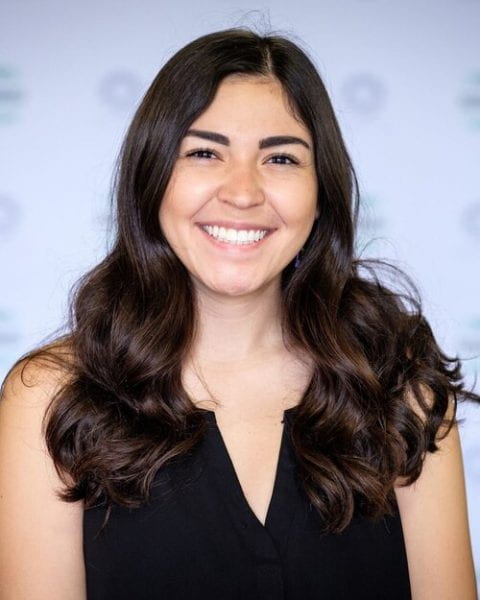 Alex Galván, (she/her/hers), originally from the Scottsdale neighborhood on the southwest side of Chicago, is a first-generation graduate student at the School of Social Service Administration. Alex is in her first year of the extended evening program and works full time at Chicago HOPES for Kids as the Outreach and Family Engagement Administrator. Alex is interested in building community spaces for BIPOC that promote healing through relationships, art, and storytelling.
Alex Galván, (she/her/hers), originally from the Scottsdale neighborhood on the southwest side of Chicago, is a first-generation graduate student at the School of Social Service Administration. Alex is in her first year of the extended evening program and works full time at Chicago HOPES for Kids as the Outreach and Family Engagement Administrator. Alex is interested in building community spaces for BIPOC that promote healing through relationships, art, and storytelling.
Q. What challenges do you face as an FLI student?
A. As a first-generation student, it can be very difficult to navigate the systems of higher education, especially graduate school, without familial support. While my family is emotionally supportive, they simply don’t have the institutional knowledge to help guide me through this process. As a low-income student, frankly, it is difficult to accept that despite having a degree from the University of Chicago, society simply doesn’t value social workers enough to pay us a fair wage that will allow me to pay off my student loans, both undergraduate and graduate, in a reasonable time frame. It is difficult to know that because my passion lies within social justice work, I will remain the same, or potentially lower, socioeconomic status as my parents. Universities have a responsibility to look beyond simply admitting FLI students, but to ensure that students are leaving institutions with an equal chance to build wealth. In addition, non-profits and government agencies have a responsibility to ensure that FLI and BIPOC employees are paid equitably, considering the student loan debt a low-income student may have had to take on.
Q. What is one change you wish to see during your time at the university?
A. One thing I would love to see for SSA is a curriculum for social workers in Spanish. I don’t think it’s enough to expect native speakers to ethnically provide services in a second language. For instance, if I’m working with an immigrant from Mexico it’s important for me to understand the systems within that country to contextualize their experience. I think the university has a responsibility to ethically train bilingual speakers in Social Work. I would love to see UChicago partner up with UNAM, especially now that everything is virtual.
Q. What advice would you give to your 18-year-old self?
A. I would’ve told my 18-year-old self as I was going to UW-Madison to take time to reflect on my own positionality and culture, and how that has impacted my life thus far. I would have told myself to actively seek spaces and opportunities that reflect my identity and passions.
Q. What is your proudest moment so far?
A. Graduating college was a proud moment for me not only because I’m a first-gen student but because I really struggled with my last semester of college. I had lost a big scholarship and I was really struggling with my mental health. I really thought I was going to have to drop out, so I’m very proud of myself.
Interview by: Marisol Menchaca-Escalante
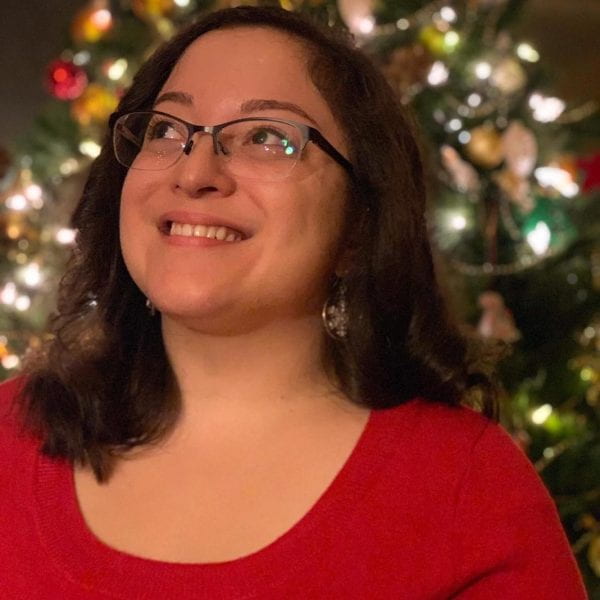
Jessica Donada (A.M. ’20) is an advanced standing Social Work student with a concentration in Administration at the University of Chicago School of Social Service Administration.
Jessica Donada’s Letter to the FLI Community
Thank YOU for being here. As first-generation, lower-income, immigrant students, we face unique challenges that other university students don’t. From filling out the FAFSA ourselves – because our parents can’t read English or have never filled one out – to visiting college alone – because our parents couldn’t take off work, we had to learn to exist as a FLI student at UChicago. I want you to know that you are seen, and your hard work is noticed.
As an Advanced Standing School of Social Service Administration Master’s student, I was only a part of the University for one year, less than that in person as COVID-19 hit. Juggling my coursework, social work field placement, and part time job—all in different parts of the city, commuting 1.5 hours each way to campus didn’t allow me to take part in any of the Center for Identity and Inclusion’s resources or events for FLI students. However knowing that they existed, simply through their newsletters, I believed that they were there for me if I needed. It was reassuring. My story may resonate with you, but if I could go back and attend an event for FLI students, I would. I hope you will get a chance to attend at least one too. Even if I wasn’t able to attend those events, having a good group of friends who shared the same background and struggles as me was essential; knowing that I was not the only one struggling with situations unique to FLI students was incredibly helpful in the times that I felt like I didn’t belong, that I wanted to quit, that I was going to fail.
If you could take away one thing from my letter is that you DO belong at the University of Chicago. I had to continually remind myself of that every time I stepped off the #2 bus in front of SSA’s building. When I was applying for a Master’s programs, I couldn’t even fathom being at this University. My mother sat with me as I completed the application and wrote and rewrote my statements. When I was accepted, she told me, “You see, you do belong, mija.”
